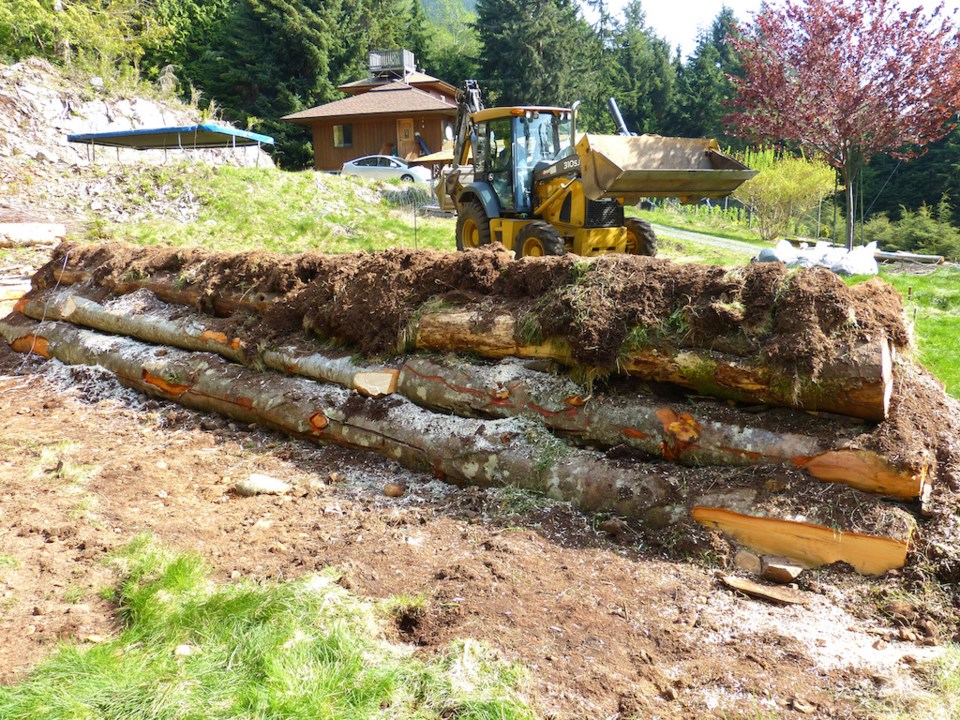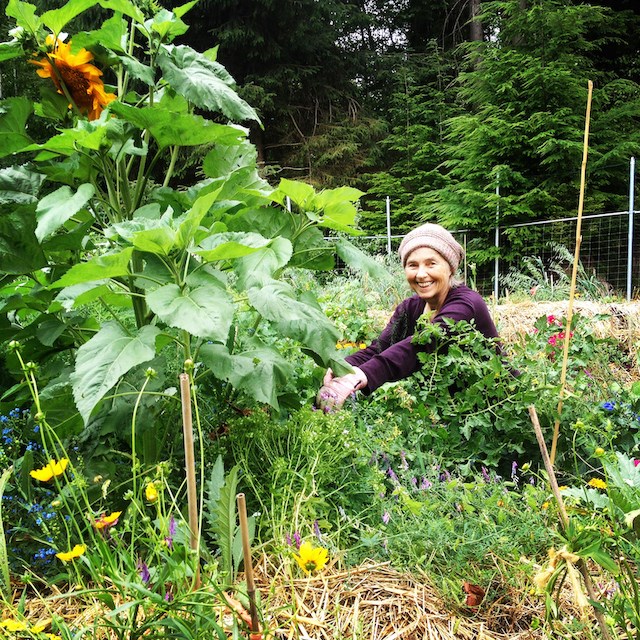The word seems strange (it’s pronounced Hoogull - Kulchure) but this imported food-growing method could be the salvation for Bowen Island gardeners.
As many of us know, the soil on our precious isle is relatively poor and rocky and we sometimes face water shortages. At least two prolific home gardeners on Bowen are addressing these problems by using hugelkultur with amazing results.
Translated, hugelkutltur means “hill culture” or “hill mound.” “Hugels” are a form of raised-bed gardening but with some key differences. Instead of building boxes and filling them with soil, a hugel is created by burying tree logs and creating a broad, raised mound with sloping sides.

In the spring of 2013, islander Jackie Bradley picked up Sepp Holzer’s book Permaculture – A Practical Guide to Small-Scale Integrative Farming and Gardening.
“I fell in love with this man’s attitude toward growing things and I began forming my dream of having a hugelkultur-centred garden,” she said.
It also led Jackie to explore the field of permaculture ––working with nature rather than battling it ––and using organic seeds. Jackie and her husband, Phil Gregory, got started in April 2014.
Local permaculturist Jesse Lemieux guided the process. His first step was to orient the hugel to face the sun.
To assemble the necessary materials, Phil chopped down alder trees on their 6.2 acre property and bought deer fencing, manure and straw from local suppliers. Jackie and Phil decided on steel posts because wood ones either rot if not treated, or if treated, the chemicals would defeat the goal of gardening organically.
Then, the couple set to digging a trench two and a half feet deep and ordered good, healthy, organic soil. They hired islander Frank Seaberly to haul the alder logs and he laid the logs in the trench and layered them with branches and soil. Green cover crops and manure were stuffed into the crevices as logs were stacked five high in a pyramid fashion. Once the logs were in place, Jackie and Phil added a good layer of mulch on top to keep the soil from drying out. An advantage of hugel gardening is that, as the logs and branches decompose, soil aeration is increased, so tilling isn’t necessary. No tilling means that carbon is kept in the soil.
The branches and logs of the hugel also act like sponges, storing the rainwater and releasing it during drier times. You may never need to water your hugel bed after the first year, except during severe droughts.
Another benefit of hugels is that their mounded shape has more growing area than a traditional raised bed.
Both Jackie and Phil are dedicated to “regenerative agriculture,” and their hugel gives them just that. Regenerative agriculture continually improves soil by restoring its carbon content, which in turn improves the health, nutrition and productivity of plants.
Jeanette Wrenshall (yes, your local artist and barber) uses a hybrid form of hugelkultur to create food forests at her off-the-grid compound on the island’s west side. Living on the side of a mountain, Jeanette uses “swales” to slow and direct the rushing water that sheds onto her property.
“I’ve created food forests on hugel mounds and swales,” Jeanette explained. “We have nut and fruit trees inter-planted with perennial food shrubs, root crops, and annuals.”
To know that vegetables and fruit can grow profusely on Bowen in drought-resistant gardens that sequester carbon is good news for the soil, the folks who garden it, and all of us who enjoy the bounty!
You can borrow a copy of Jackie and Phil’s book, Hugelkultur Garden, at the Bowen Island Library. For more information about hugels, or to learn about the permaculture workshop on Bowen, contact Jackie at: [email protected].



